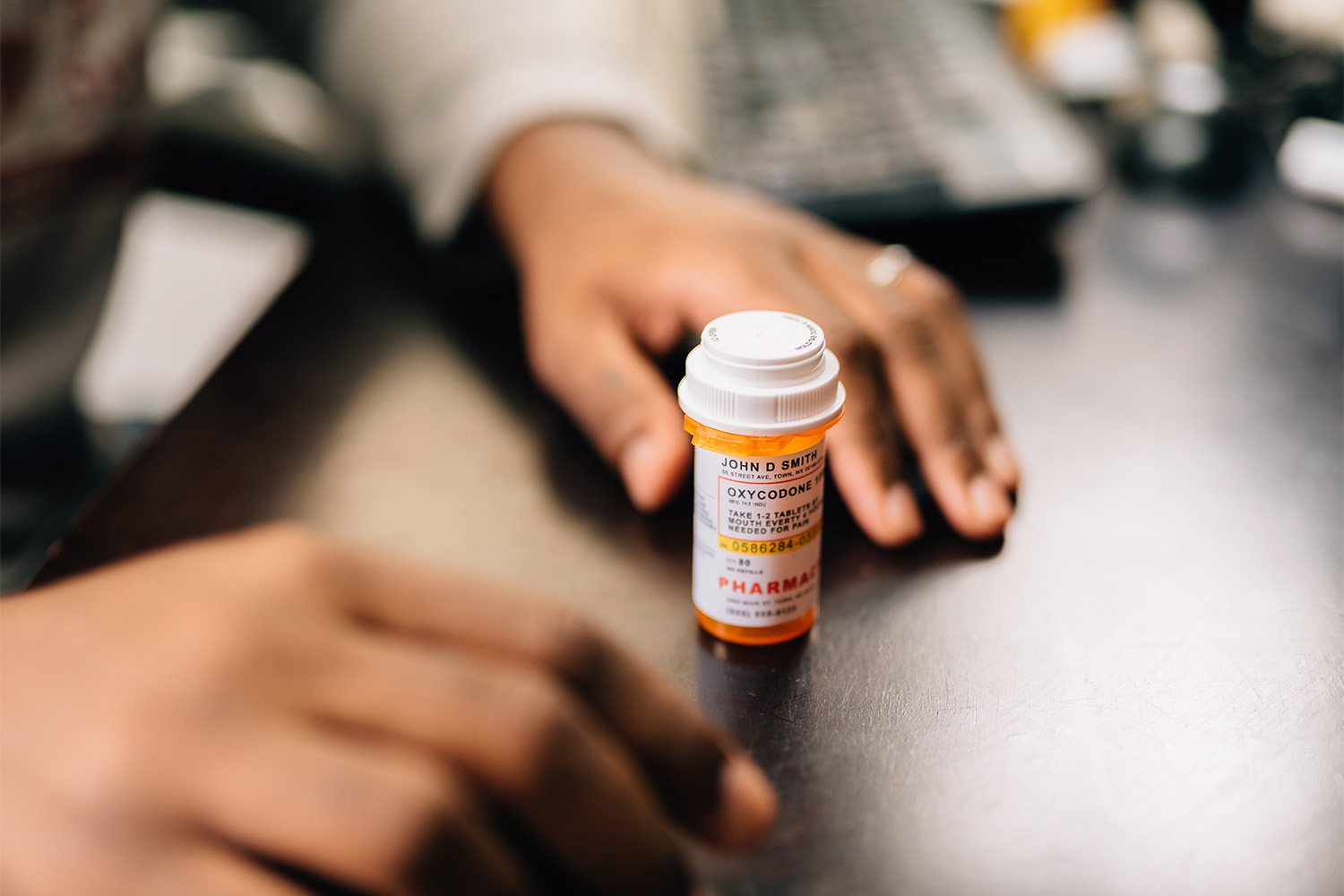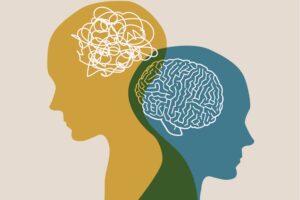Opioid addiction is a chronic disease that can negatively affect you physically, mentally, and socially. It’s a very difficult addiction to overcome, and it doesn’t always happen by simply experimenting with drugs. Opioids can be prescribed to you for pain after surgeries or accidents and cause problems from there.
When you or a loved one are struggling with opioid addiction, there are many signs to look out for that signify a struggle. It is important to be aware of the signs so that you can support your loved ones with opioid addiction efficiently and effectively.
Keep reading to learn more about the signs of opioid addiction and how to get help.
What Is Opioid Addiction?
Opioid addiction, or opioid use disorder (OUD), is characterized by the constant need to use opioids to function throughout the day, regardless of any negative outcomes. It is classified as a disease and substance use disorder and can form from various reasons and influences.
People who struggle with opioid addiction will have a strong urge to use opioids even when they are no longer needed because they have developed the need for the additional endorphins in their bodies. These individuals may need higher doses to achieve the same effects, which can result in drug overdoses.
Opioids are prescription drugs that are primarily used as pain relievers or painkillers. Individuals with chronic pain may be prescribed opioids — however, the constant nature of their pain can lead to eventual drug abuse.
Prescription opioid abuse can eventually turn into other types of drug addiction, especially since prescriptions are so closely monitored for signs of opioid misuse. Not everyone becomes addicted to opioids if prescribed, but they are dangerous drugs that should be closely monitored to avoid dependency.
Examples of prescription opioid medications include:
- Oxycodone (OxyContin)
- Fentanyl
- Methadone
- Buprenorphine
- Codeine
- Hydrocodone
Another type of opioid, heroin, is commonly used as a street drug. Heroin is a dangerous substance that can lead to increased drug abuse and overdose due to the unregulated nature of its production.
What Causes Opioid Addiction?
Many factors can lead a person to opioid addiction. Environmental, societal, and genetics can play a role in developing opioid addiction. However, if they never try opioids, it’s unlikely that the addiction will develop.
People with family members who struggle with addiction, both generally and to opioids, are at a higher risk of developing OUD. If you grew up in a house where opioids were abused or in a community where opioid addiction was a problem, you might be more likely to try them and develop an opioid drug addiction.
Additionally, people who struggle with poverty, mental health issues, trauma, or other substance abuse disorders are more likely to try opioids and become addicted. Opiates aren’t often the first drug someone tries, but many people make it there eventually.
People are still given opioids after surgeries, injuries, or accidents. This could be very dangerous if you are predisposed to addiction or have a family history of drug abuse. You should let our doctor know about your connection to addiction before allowing yourself to be prescribed opioids.
Symptoms of Opioid Use Disorder (OUD)
If you are worried that someone in your life is struggling with OUD, you should consider some of the following signs. Opioid addiction has physical and mental symptoms, economically and socially. By recognizing when someone is struggling, you may be able to help get them out of their negative cycle and avoid opioid overdose.
Physical and mental signs
Opioids can really take a toll on your body and mind. A person struggling with opioid addiction may stop acting like their normal self, and their appearance might also shift. You may notice that their behavior becomes more irritable and unpredictable. You might not feel as safe as you used to due to outbursts.
Some signs to look out for are:
Physical
- Weight loss
- Poor hygiene
- Vomiting and diarrhea more frequently
- Lack of coordination and motor skills
- Scabs or puncture wounds
Mental
- Difficulty concentrating
- Feeling detached
- Erratic behavior
- Depression and anxiety
- Paranoia
- Emotional mood swings
- Irritability and aggression
If you know someone suffering from opioid addiction, you may have noticed signs of opioid withdrawal. Withdrawal symptoms include watery eyes, inability to sleep, anxiety, nausea and vomiting, and stomach cramping.
Some individuals with opioid addictions may also carry naloxone or naltrexone, opioid-reversing medications designed to prevent overdose deaths. Overdoses are more common in individuals who also abuse benzodiazepines, like Xanax, which are nervous system depressants.
Economic and Social Signs
Opioid addiction also impacts how a person behaves in social settings and impacts their finances. Maintaining any kind of addiction can be very expensive. On top of it being expensive, it can be difficult to hold down a job during this period, making it more difficult to obtain the drugs. However, many people will put finding a way to get drugs over their own health and safety.
Some economic and social signs to look out for are:
Economic
- Asking for money more frequently
- Not being able to hold down a job
- Stealing from family or friends
Social
- Avoiding family and friends
- Not showing up for work
- Lying to friends and family
- Lying to doctors about pain levels
- Hanging around with a new group of people
How To Prevent OUD
Never taking an opioid is the most straightforward way to avoid developing opioid use disorder. However, some people will still have to take prescription opioids for their pain relief, and there are ways to avoid developing an addiction to your prescription.
For starters, you will want to take the medication exactly how it is prescribed and have someone else hold you accountable for it. If it helps, you can have someone you trust to be in charge of your medication and help to administer them to you when you need them.
In many cases, you can ask what your other options would be for pain management. Being upfront with your doctor and other healthcare providers about any addiction concerns will help you devise a plan on how to take them properly.
If you notice signs of opioid addiction in yourself or a loved one, recognizing the risks and accepting treatment is the first step in your path to recovery. Spending some time in a medication-assisted treatment facility is better than spending the night in an emergency department.
If inpatient treatment is too much of a time commitment, there are several outpatientopioid treatment centers as well.
If you feel like you are struggling but don’t have a support system, you may want to call the Substance Abuse and Mental Health Services Administration’s helpline. The SAMHSA helpline can help direct you to human services resources, medical providers, and treatment centers.
The Centers for Disease Control and Prevention (CDC), the National Institutes of Health (NIH), and the National Institute on Drug Abuse (NIDA) also have a wide selection of online resources and prevention techniques to help you navigate your journey with awareness.
Treating Opioid Addiction at Soba Recovery
If you are struggling with opioid addiction, there is hope for you to enter into recovery. Many people in your life want to support you, and Soba Recovery Center in San Antonio, Texas, is also here to help. Through multiple forms of treatment, like inpatient care, detoxification services, medically-assisted treatments (MAT), and sober living situations, you are supported throughout your time with Soba.
Our trained professional staff is here to create an individual treatment plan that works to treat your specific needs. Everyone struggles with addiction in their own way, but there is always a path to take to recovery.
Reach out today to a Soba representative and learn more about how we can help you or your loved one battle opioid addiction and get back to feeling like themselves.
Sources:
Opioid Addiction | NCBI Bookshelf
Opioid Use Disorder – Fact Sheets | Yale Medicine
Identifying and Managing Opioid Use Disorder (OUD) | U.S. Department of Veterans Affairs





